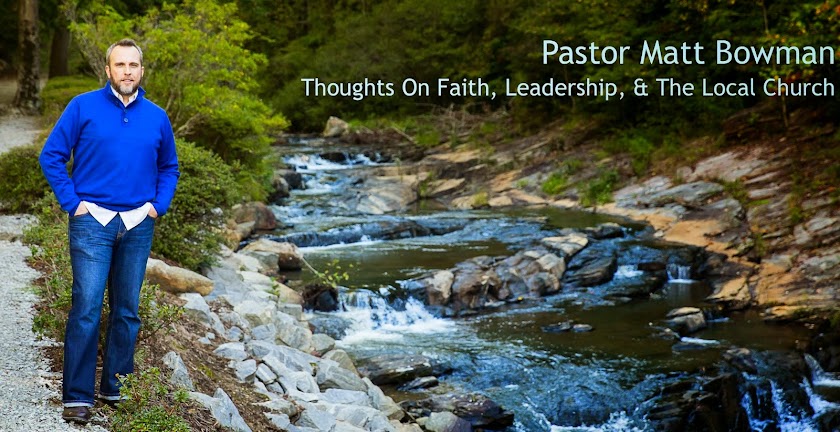Leading always involves change. It's unavoidable. It's almost always uncomfortable. It's always necessary. Leadership by definition involves taking people or an organization where it's never been before, so change is inevitable. When leading a congregation, change is especially difficult & sometimes deceptive. It's difficult because in many settings there hasn't been meaningful change at the structural or organization level for years, decades, or maybe ever! Ironically that lack of change makes change even more necessary in order to move forward.
Here's where the deceptive part of change comes in. It's tempting & dangerously easy for both leaders & those in the congregation to believe the lie that simply changing programs, schedules, strategies, & structures will affect lasting, meaningful change for the congregation & that all of issues the group may have endured will magically disappear. I'm sure as you're reading that you're realizing how silly it is to think that way, but deep down we've all been fooled into thinking those external changes will some how lead to drastic internal changes. I wish it were that simple, but it's far more messy & complicated than that.
"Changing Programs & Structures Doesn't Change A Church.
Only Changed People Change A Church."
Changing programs & structures is actually a lot easier than changing people. However, changed people are far more powerful than changed programs & structures. The hope is that changing structures & programs may create a more suitable environment for people to experience the life changing power of the Gospel & the community of the Church, but that doesn't guarantee that we will actually experience it. We are incredibly skilled at resisting Jesus & His desire to transform us. Our structures & programs are important, but don't be fooled; they're no magic bullet. If they were, 75%-80% of evangelical churches wouldn't be plateaued or in decline. If changing your groups structure or worship service or meeting space did the trick, we would have stumbled onto the right trick by now.
Instead, we need a renewed commitment to creating the right environments & structures for growth to happen while also praying desperately that God would do what only He can do in our lives & in the lives of those we serve with & lead. So if you're a leader, don't think you can program or structure life change & heart change in your congregation. You can't. You're not Jesus. That doesn't mean you shouldn't boldly lead & implement the changes that are necessary. It just means that you need to remind yourself that those changes aren't really the change we're hoping for & praying for. If you're the member of a congregation that's in the middle of some kind of transition, change, or revitalization ministry, embrace the change that comes, but don't assume that those changes are just going to "fix" everything. Instead, immerse yourself in a fresh pursuit of Christ & what it would look like to embody His life through your life. Don't just attend a Bible study; pursue meeting with Christ through that Bible study & let Him begin to change you. Don't just serve in that ministry; seek to make Christ known through your ministry to & love for those you serve. After all, the only thing that will really change your congregation, is when you & I are changed. Changing programs & structures can't affect meaningful change, only changed people.





